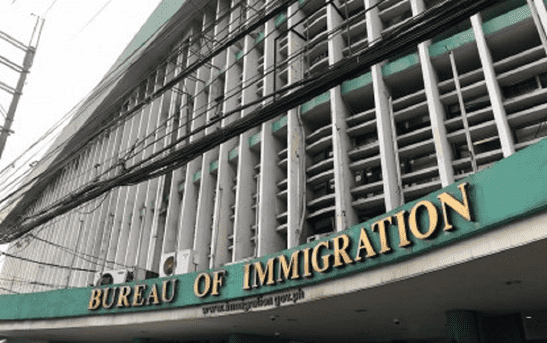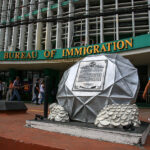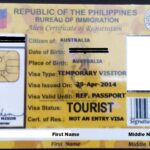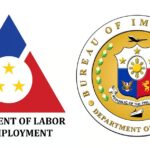With its growing economy and high demand for expertise in manufacturing, renewable energy, and AI, the Philippines provides excellent opportunities for foreign professionals. However, employers and prospective employees must understand that foreign nationals require a work visa to work legally. They should learn the types of work visas available, their requirements, and the application process.
What Is a Work Visa?
A work visa is a legal document that allows foreign nationals to work in the Philippines for a specific period. It is typically tied to a specific job or employer and issued by the Philippine government to ensure compliance with immigration and labor laws.
The Bureau of Immigration (BI) and the Department of Labor and Employment (DOLE) oversee the process, ensuring that foreign workers meet the necessary qualifications and that local labor markets are protected. You’ll typically need an Alien Employment Permit (AEP) to process your application for most visa types.
Types of Work Visas in the Philippines
The Philippines offers several types of work visas, each designed for specific employment scenarios. Here are the most common:
- 9(g) Pre-Arranged Employment Visa: This is the most common work visa for foreigners employed by a Philippine-based company. It’s valid for one to three years and is renewable, typically requiring sponsorship from an employer.
- PEZA Visa (previously 47(a)(2) Special Non-Immigrant Visa): Issued to foreign nationals employed by PEZA-registered firms in economic zones like IT parks and manufacturing hubs. Other economic zones provide their own specific visa types.
- Special Work Permit (SWP): A temporary permit for short-term work (up to six months), ideal for consultants, trainers, or those on short assignments.
- 9(d) Treaty Trader Visa: For nationals of countries with trade treaties with the Philippines, like the U.S. or Japan. Applicants must show ongoing trade/investment, prove financial capacity, and obtain their home country’s embassy endorsement.
Each visa type caters to different employment needs, so choosing the right one depends on your job and duration of stay.
Requirements for a Work Visa
Securing a work visa involves meeting specific criteria set by the BI and DOLE. While requirements vary by visa type, common documents include:
- Joint letter request: Addressed to the Commissioner from the applicant and the petitioner.
- Valid Passport: Must be valid for at least six months beyond your intended stay.
- Employment Contract: A signed contract from a Philippine employer outlining your role, salary, and terms.
- Alien Employment Permit (AEP): Required for most work visas, obtained through the DOLE. Employers must justify hiring a foreigner over a local candidate.
- Company Documents: Proof of the employer’s registration with the Securities and Exchange Commission (SEC) or other relevant authorities.
- Latest Income Tax Return (ITR): The company’s latest ITR with the corresponding proof of payment.
- Notarized Certification: Shows the number of foreign and Filipino employees from the company.
- Medical Certificate: A health clearance from a BI-accredited clinic, confirming you’re free from contagious diseases.
- BI Clearance Certificate: Verifies the foreign national’s legal status for visa applications in the Philippines.
- Proof of Filiation with the Applicant: Confirms the relationship between the applicant and the company
- Tax Identification Number (TIN): Applicant’s TIN is required for tax compliance in the Philippines.
- Visa Application Form: Completed forms specific to the visa type are available from the BI website.
- Passport-Sized Photos: Recent photos meeting BI specifications.
Some visas, like the 9(d) Treaty Trader Visa, may require additional proof of trade or investment activities. Please consult with us to ensure your requirements are complete, accurate, and fully compliant.
How to Apply for a Work Visa
Applying for a work visa in the Philippines involves several steps, often coordinated with the employer:
- Secure an AEP: The employer applies for the Alien Employment Permit through DOLE, submitting proof that a local candidate cannot fill the position.
- Gather Documents: Collect all required documents, including your passport, contract, and medical certificate.
- Submit Application: File your visa application with the Bureau of Immigration, either in person or through an accredited agency. Your employer typically assists with this step.
- Pay Fees: Visa fees vary by type. Additional costs may apply for the AEP or medical exams.
- Biometrics and Interview: Attend a BI appointment for fingerprinting and, if required, an interview.
- Wait for Approval: Processing times range from two weeks to two months, depending on the visa type and completeness of your application. You can secure a Provisional Work Permit (PWP) to work while your application is being processed.
- Receive the Visa: Once approved, your visa will be stamped in your passport, and you’ll receive an Alien Certificate of Registration (ACR) I-Card.
Consider partnering with Work Visa Philippines. We’ll make sure your requirements are complete and accurate, preventing delays and ensuring compliance with Philippine law.
Final Thoughts
Working in the Philippines can be a great opportunity for foreign professionals, but they need a work visa. Employers and prospective employees should identify the correct visa type, gather all the requirements, and communicate clearly with the Bureau of Immigration. Consider working with us to ensure your documents are complete and to streamline the application process.
Are You or Someone You Know Planning to Work in the Philippines?
Let Work Visa Philippines guide you through the process. Our experienced lawyers help you obtain your alien employment permit, work visa, and other legal documents from the appropriate government agencies. We’ll make sure you’re fully compliant so you can focus on enjoying your stay in the Philippines.
Reach out today, and we’ll guide you every step of the way.
- Contact Us Here
- Fill Out the Form Below
- Call us at +63 (02) 8540-9623





